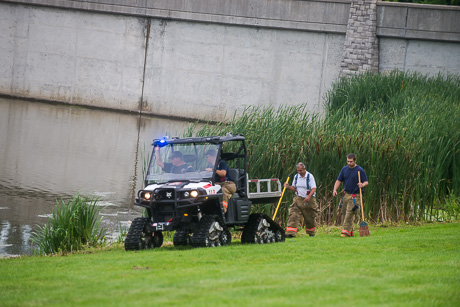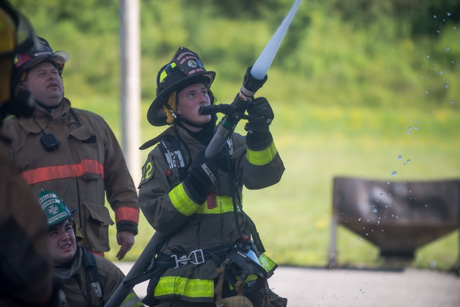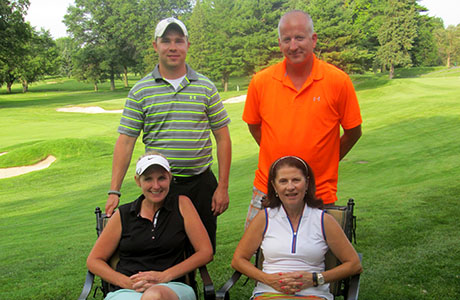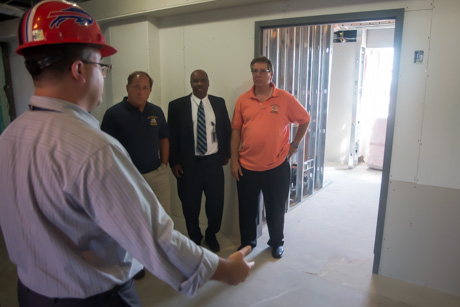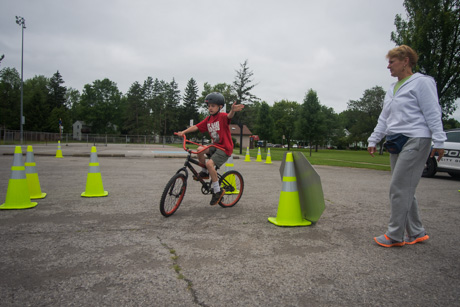The U.S. Census Bureau put out a press release and the national media ate it up: There are now more people living in the United States who are classified as Millennials than there are Baby Boomers.
The Democrat & Chronicle got into the act by pointing out Millennials now outpace Baby Boomers in Monroe County.
There’s been no similar coverage in Erie County, but Buffalo has enjoyed a reputation for the past couple of years as one of the major cities young adults are helping to revitalize.
So where does that leave Genesee County?
Not on par, it seems.
While nationally, there are 83.1 million Millennials, comprising a quarter of the U.S. population, and the number of Baby Boomers has slipped to 75.4 million, the post-war cohort still rules the roost in the Batavia Micropolitan Area.
According to the Census Bureau Web site, there are 15,422 Baby Boomers locally compared to 14,670 Millennials.
Is Genesee County’s lagging Millennial population a trend that's important?
Absolutely, say those with the jobs related to the area’s development and growth.
“You definitely want to have Millennials in a community,” said Felipe Oltramari, the county planning director. “The next generation will create the jobs and opportunities for future generations to be here. As they become players with purchasing power, we want to make sure they are living here and they’re bringing more buying power and creating more jobs and running our community. From an economic development perspective, and social perspective, you want people here from all sorts of generations.”
The window of opportunity to anchor a small town with Millennials may be closing shortly, according to William Fulton, director of the Kinder Institute for Urban Research at Rice University in Houston, Texas.
And it’s a critically important issue for the future of small cities.
“Most people settle down by age 35, and usually don’t move from one metro area to another after that,” Fuller wrote in an article for Governing.com. “And the demographic group behind the Millennials is a lot smaller. Just like Baby Boomers, the preferences of the Millennials will drive our society for two generations. They’re making location decisions based on their idea of quality of life. And they’re going to make all those decisions in the next few years -- by the time they’re 35.”
The good news, according to Fuller, is even if time is short, the goal is obtainable for small cities.
“Even Millennials … want to live near their families and near where they grew up, meaning that if you can create interesting places, they’re likelier to stay,” Fuller wrote. “And you don’t need the endless hip urban fabric of New York or D.C. to compete. You just need a few great neighborhoods for people to live and work in. For most cities, that’s an achievable goal.”
Interesting places, amenities, activities, culture and the opportunity to interact socially, these are the things planners say Batavia needs to retain and attract Millennials.
“I try to drive this point every time I speak,” Oltramari said. “This generation moves first and then finds a job. If you look, there are jobs here and available, but they want to be where their peers are.”
So how do we create an environment where Millennials want to live?
A key word: density.
According to research by Nielsen:
“Sixty-two percent indicate they prefer to live in the type of mixed-use communities found in urban centers, where they can be close to shops, restaurants and offices. They are currently living in these urban areas at a higher rate than any other generation, and 40 percent say they would like to live in an urban area in the future. As a result, for the first time since the 1920s growth in U.S. cities outpaces growth outside of them.”
Tim Tielman, a Buffalo preservationist and development consultant, observed at a Landmark Society talk in 2013 that Batavia is hampering its ability create the kind of economic core that attracts Millennials and like-minded residents with its over-abundance of downtown parking.
"One of the biggest issues every city faces is dead zones," Tielman said. "Batavia has dead zones up and down its streets. Dead zones are devoid of commercial activity. You chain too many dead zones together and you destroy your local community."
When you build your commercial district around the car, the district loses its appeal to pedestrians, and when people walk and interact, commercial activity soars, the feeling of community is pervasive, and social and civic capital grows.
"It isn't cars that make a place a commercial success," Tielman said. "It's a success (based) on how well the human animal can get about certain places. It's what appeals and what stimulates them to walk."
More and more, City Manager Jason Molino said, he’s hearing people talk about walkability. Increasingly, it’s what all communities are after, and something — along with the companion concept bikeability — that Batavia is lacking.
“People want quality-of-life amenities,” Molino said. “People will commute a little bit if you don’t have the jobs in this area if they have the amenities.”
Molino got an immersive experience in the kind of lifestyle amenities that help bring vitality to an urban area. On a vacation day, he and his family visited a couple of the shopping districts in Buffalo and then stopped for dinner at Larkin Square. It was Food Truck Tuesday (video).
Larkin Square, part of what is now known as Larkinville, an area once known as the Larkin District, which is considered Buffalo’s first commercial district, was a rundown industrial warehouse neighborhood. Spurred by a $2 million public-private investment in 2009, the Larkin Building and surrounding cityscape was redeveloped and revitalized. It’s become a hot spot in Buffalo for retail, food and entertainment activity. Tielman was a consultant on the project.
“Two things were obvious to me,” Molino said. “You had people coming to the square right after work, Millennials coming right after work, but you also had the senior population and families — people interested in this kind of quality-of-life amenity with vendors, live music, a pavilion and seating area, and a grass area, and 20 food trucks, all reasonably priced.”
There’s an interesting intersection these days between what Millennials want and Empty-nesters want, Molino noted. They want to get away from the demands of suburban home ownership and the lack of a closely knit community fabric and they seek out walkable neighborhoods with plenty of retail, dining and entertainment options.
That’s what he saw throughout his vacation day with his family in Buffalo.
Steve Hyde’s spent some time recently in Larkinville as well and came away with the same observations.
“It’s a fabulous, vibrant place,” said Hyde, who is the president and CEO of Genesee County Economic Development Center (GCEDC).
Hyde has been spending more time recently working with the City of Batavia to help secure funding and support for the city’s Batavia Opportunity Area, also known at the Brownfield Opportunity Area, or BOA.
The BOA plan is focused specifically on redevelopment of properties that are stalled in the revitalization pipeline in the Downtown area, such as the Della Penna property on Ellicott Street. Moving these projects forward would help advance further Downtown revitalization.
A look around town at all the underused and often dilapidated space might make revitalization feel like a daunting task, and though time is short to attract Millennials, Julie Pacatte, the economic development coordinator for the Batavia Development Corp., isn't feeling any pressure, at least in the sense that revitalization needs to occur before Millennials age out of relocating.
"I think we're fortunate that by the time people reach 35, they tend to move back here with their families," Pacatte said. "They want that smaller-town environment, where they know who's who and they like that feeling of community. We're fortunate it in that way, so no, I don't feel the pressure. I do think we have an opportunity to attract younger people sooner into our community and we're excited about that opportunity. I don't feel the pressure of it, but I certainly want to see something happen in a shorter time frame, in the next five years, in terms of turning some of these sites around."
Since the trend in cities across the country is toward density and mixed use, with greater demand for apartments in downtown areas, Batavia has backed several initiatives to convert underused or unoccupied space in Downtown into apartments, and Pacatte has been right in the middle of it.
She said the new apartments Downtown have certainly proven attractive to Millennials.
Molino agreed.
“All of our marketing studies show there is a demand for this kind of housing in Batavia,” Molino said. “People want to come to our area. It’s a core, central area.”
Part of the plan for Downtown is also creating more office space. Businesses that are founded by Millennials or that hire Millennials need space to relocate and grow, Pacatte said.
"A priority for us is drawing more people Downtown to live, work and shop," Pacatte said. "Millennials are the right target market for our Downtown plan."
While Hyde’s job is to create jobs and stimulate economic growth in Genesee County, Molino’s focus is a little broader. He wants to see Batavia become a better place to live.
He believes Batavia is ideally suited to be a less-expensive alternative to Buffalo and Rochester for Millennials and Empty-nesters, even when they work in the larger neighboring counties.
“With mobility being what it is these days, if you draw a half-hour circle around Rochester and Buffalo, they’re going to intersect in Batavia,” Molino said. “If people at that half-hour distance as a reasonable community, where can they find those amenities? That’s going to be what sells communities to Millennials and Empty-nesters.”
Hyde said what has already been accomplished in Batavia is attracting Millennials. He knows because his daughter, who works in Rochester, and a roommate, who works in Buffalo, rented one of those Downtown apartments.
“They love it,” Hyde said. “Everything is in walking distance. There are restaurants and bars and things for them to do. We need more of that Downtown.”
A place for Millennials to land in Batavia will increase the impact of STAMP (Science, Technology and Advanced Manufacturing Park) if the GCEDC is successful in attracting the kind of high tech, nano tech, advanced materials, solar and bio-manufacturing the park is designed to accommodate. The companies that set up shop in STAMP are going to hire a lot of Millennials who will make good wages and want a lifestyle that is social and active.
Hyde believes Batavia needs to be ready for them, or miss the opportunity to secure future growth.
“We can be a bigger center of economic opportunity,” Hyde said. “We can create a hip, smaller center city with lots of lifestyle choices.”
The BOA is tuned to provide just that kind of boost.
"The opportunity is in front of us," Pacatte said. "We have to make our Downtown more attractive and through these BOA sites, we will really be able to transform the Downtown experience."


